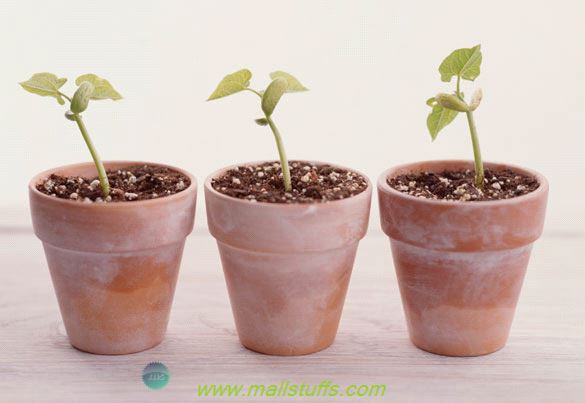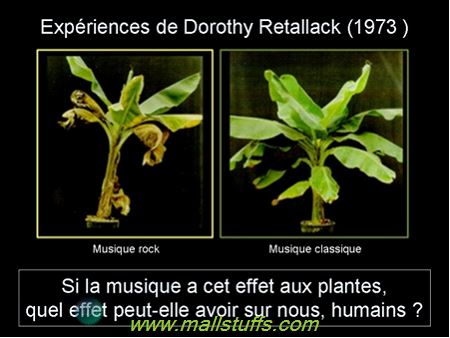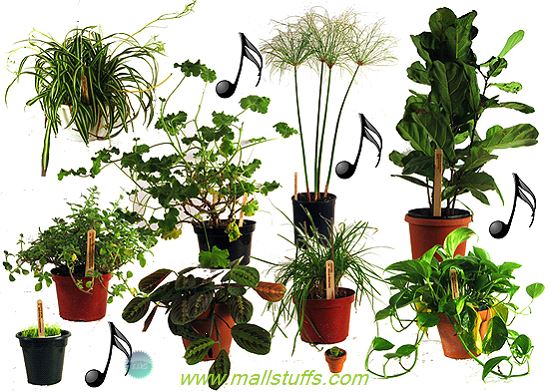
How music affects plant growth
Music has been used in the cure of many diseases across many ancient cultures.
Music was used in religious ceremonies for the invocation of gods. Music was also used for chanting, singing bhajans and bhakti movement but you may have never heard of use of music to boost growth of plants. In recent studies, it has been demonstrated that even plants create music and enjoys certain kind of music. In this article, we will see how plants react to music and would discuss on creation of music by plants in next article.
Music- a communication medium for plants?
Music is the way for plants to communicate with other plants and the atmosphere. Plants communicate with other plants according to their requirement, intelligence and sensitivity. This is more evident from verses in bhagavad puranas and other Shastras where the plants are shown with living instincts such as dancing, singing, talking etc. Through his flute, Krishna would express his love to all plants and animals of the forest. Plants would also respond by gushing falling leaves, blossoming leaves etc and animals would express their love by coming close to lord Krishna and listening to the divine music of his flute sitting next to him.

Experiments on plants reacting to music
In 1973, woman named “Dorothy Retallack” did extensive research on influence of music on plants and documented his observation in her book” Sound of music and plants”. She placed several plants in different chambers and projected each plant with different styles of music to study its effect. She noted the progress of the plants daily.
Plants die listening to steady tone music for long hours
In one of her experiment, she used three plants. A simple steady tone was projected continuously for 8 hours on one plant, same tone was projected on another plant for 3 hours and no tone was projected on the third plant. What she observed was very astounding. First plant died, second plant grew at a faster rate and was extremely healthy and the third plant grew normally.

This result was very similar to the experiment performed by Muzak Corporation to study the effect of music on factory worker. Workers were unproductive and fatigue on listening to music for more than six hours whereas they were found to be very productive when the music was played for only few hours. Moreover, they were found to be very attentive and alert in the remaining time when no music was played.
Plants blossom listening to classical music
In another experiment, she used two plants in separate chambers. One was connected to radio tuned to rock music and another to a radio playing soothing classical music. After paying radio for 3 hours, she observed drastic changes from the fifth day onwards. Plants grew healthy in the chamber tuned to classical music with stem bending towards the radio whereas the growth of plants tuned to rock music was stunted. After two weeks, Soothing plant grew enormously green and lush blossomed with flowers leaning 20 degrees towards the radio whereas the rock chamber plant grew extremely tall but bended away from the radio. After three weeks, rock chambers plants were almost dying whereas the soothing chamber plants were alive, beautiful and healthy.
Plants die listening to rock music
Next she studied the effect of different kind of hard music. Plants leaned away from the speaker on listening to rock music whereas it leaned slightly away than rock music on being projected to steel drum music. However, plants were fund to be leaning towards the speaker on being projected to soft music of the guitar strings
Plants react best to Indian classical music
Next, she again tested three plants in different chambers. One was projected to Indian classical musical performance of sitar and tabla, another to Bach organ music and third one to no music. Plant exposed to Indian classical music showed the best likeness as they leaned more than 60 degree towards the speaker and the second plant leaned around 10 degree towards the speaker.
Other reactions by plants to different types of music
She performed many experiment with different kinds of music. Plants did not react at all to western and country music whereas they liked the jazz music. Plants leaned 30 to 70 degrees away on listening to rock music and leaned 10 to 20 degrees away on listening to modern classical fusion.
Plants don’t like rock music
In another experiment when the plants were beamed with acid rock music, all the plants leaned away from the direction of music. When Mrs. Rattallack rotated the pots 180 degrees, all the plants leaned away in the opposite direction. i.e Plants hates acid rock music. When the level of rock in the music was reduced, the leaning movement of plants also reduced. For EX: when Spanish tune, ‘La Paloma’ was played, the leaning was only 10 degree from the vertical, very less than the 60+ degree of rock music. Plants beamed with fiddling music leaned 15 degrees towards the source of music. This experiment was done continuously for eighteen day using 25+ plants per chamber. All varieties of plants like squash, seed, flowers, leafy vegetables etc were used in this experiment

Rock music can kill plants
Rock music may sound pleasing to modern generations but it is not good for the soul. Recently, when loud rock music was played under controlled environment, it was observed that most of the plants had abnormal growth with deformed and stunted leaves while pleasant plants like marigold, died within few years. In an adjacent room where the same experiment was performed with classical music of Beethoven, Schubert, Brahms etc, marigold plant was observed to produce more flowers than it flowers under natural environment. Even after supplying the fertilizers and purified water to plants kept under rock music, their growth was stunted whereas in the second case, growth was about four times than usual. Moreover, soil in the first case was found to be less fertile at the end of the eighteenth day of experiment.
Humans should listen to classical music to increases concentration
Speaker produced sound waves that increased the flow of water and carbon dioxide in their body. Humans can communicate with plants in a musical way. A nice rhythm of classical beats and serene voice may provide soothing nourishment to the plants. Classical music has been proven to be beneficial for both students and professionals. Listening to classical music increases concentration and productivity.
I would hereby advise my visitors to sing humming music while watering plants every morning.

Sample experiment to test reaction of plants to music
To test this out, perform the below experiment yourself
1) Germinate bean seeds in six pots or small cups. Make sure you poke small holes at the bottom of the pot.
2) After they grow up, Place two of these six pots in a room that is always quiet. Expose these two pots to classical music for 2 -3 hours every day.
3) Place two pots in a room that is relatively quiet and place the remaining two pots in your living room that always have some kind of noise like TV, chatting etc.
4) Water the plants every day or whenever the soil looks dry.
5) Record the growth, color, lushness and greenery of the plant every day. Note the size of leaves, stem and branches.
6) Draw a graph from your results to determine which of the plans grew best. You will observe the classical music has helped the plant grow quickly while the rock music has attuned plant growth.
Experiments on plants reaction to music by leading botanist and researchers
1) This experiment is confirmed by many Indian botanists and well documented by Dr. T.C Singh of Annamalai University. He observed 72% more leaves and 20% faster growth on plants exposed to classical music while the plants exposed to rock music died within few days. Furthermore, Plants exposed to classical music leaned towards the speaker instead of sunlight. He stimulated growth of rice, peanuts and tobacco harvest in Indian fields. Through his experiment, he concluded ”It is beyond any doubt that harmonic sound waves affect the growth, flowering, fruiting, and seed-yields of plants”

2) Botanist and agricultural specialist “George Smith” produced thicker, greener variety of soybean and corn with 40% increased growth by playing “Rhapsody in Blue” music 24 hours a day.
3) Researchers at University of Ottawa did their random trials of projecting wheat plants to different high-frequency sound vibrations. Frequency of 5000 cycles per second was found to be the best though they were not able to explain the scientific logic behind the same
4) Canada researcher “Peter Belton” controlled the crop damages by European corn-borer moth by broadcasting ultrasonic waves. Almost 50% of the plants were destroyed where no broadcasting was done and only 5% plants were destroyed in the broadcasted case. Plants were also 5% taller and 60% lesser larvae.
5) New Yorker “George Milstein” observed the maximum growth in most of the plants on being projected to low humming sound of 3000 cycles per second. On one hand, he admitted the doubled growth of plants and on the other hand hinted to some other possibility behind the growth of plants citing the reason that plants don’t hear.
6) French physicist and musician Joel Sternheimer observed the stimulation of protein production in plants on being exposed to different kinds of music, therefore increasing plant growth.
7) Another study in Great Britain declared that women humming voices stimulates the growth in plants than men voice. This means soft tone and change in pitch generates the sound waves that stimulate the production of vital nutrient in plants.
Scientists denies effect of music on plants
According to scientist, plant don't have any ears or brain to respond to sound waves. Hence, it is very unlikely that they respond to music but they fail to explain the behavior of the plants in all the above experiments. They believe that it is not the music but the mood and perspective of the gardener that influences them to take or not take care of all plants equally. This affects the dissimilar and unequal growth of plants. How pathetic?
Scientists are wrong on hearing sense of plants
Scientist must realize plants and animal as different living beings with different structures and organs and thus, necessarily don’t function in the same way as humans do. Hence, comparing internal system of plants with animals is itself a flawed theory and sounds more like a rigid belief. More research needs to be done instead of blindly believing in only water, light and fertilizer to be the elements that can boost plant growth.
Below are some of the flute music of lord krishna
Conclusion
This article shows that there exists a profound consciousness in even lower forms of life. Plants are very choosy on the type of music they want to hear.
Plant having a taste of music sounds very romantic yet quite unbelievable. Scientists have observed that plants are reacting to sounds but they are afraid to admit the same openly as they don’t have the appropriate logic to explain this phenomenon scientifically. Hope this article would coerce you in treating your plants with soothing music.
Note: Images used on this website
are either a production of Bhaktivedanta Book Trust(https://www.krishna.com), Iskcon
Foundation or were found in google search under "Free to use and share". If any
of the images presented here violates copyright issues or infringes anyone copyright
or are not under "Fair use", then please bring it to our notice. Read
Disclaimer for more.
Share this to your friends. One of your friend is
waiting for your share.
Related Articles
Science in hinduism-Extraction-Contraction and creation of universe
Floating stones of Shri Ram Setu
Rama Sethu-Proof of India great ancient science
AUM-The most sacred sound of the universe
Scientific explanation of Hindu cosmology and reincarnation
Fall and Rise of river saraswati-India most sacred river
Science in Hinduism-Motion of earth around sun
Science in Hinduism-Gravitational force and repulsive force
Science in hinduism-Evolution in vishnu avatars
Do plants sing or create music
Post Comment